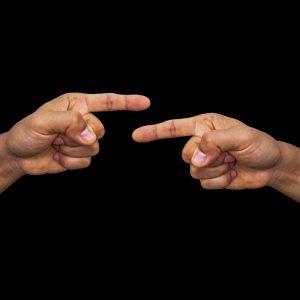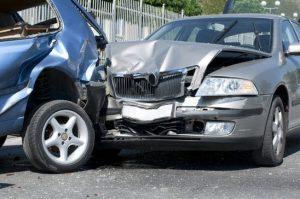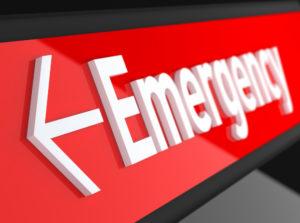
Louisiana is a fault-based state for car accidents. When a driver acts carelessly, they are at fault for any crash that occurs, and the law allows victims to pursue a case against them, including suing them in civil court as needed to recover compensation.
To put it simply, if you are at fault for an accident, you caused the accident and are responsible for subsequent damages. However, the process for determining which party is at fault differs from state to state, and anyone can file a claim or lawsuit under Louisiana law regardless of their percentage of fault.
What does Louisiana Law Say About Fault?
In Louisiana, if an insurance company determines that a party is 51% or more at fault, that party is considered to have caused the accident. This implies that the at-fault party is ultimately responsible for paying for the resulting damages and injuries their actions caused.
This is called comparative fault, which means each party may be responsible for a percentage of the fault, up to 100%. In cases where fault is shared between the parties, each party will be responsible for a percentage of the fault, according to La. Civ. Code Art. 2323. Each person is only financially responsible for the portion they caused, so if a victim shares fault but is less than 51 percent at fault, they will only recover some of the value of their case.
For example, imagine fault is divided 70 percent and 30 percent. The victim who was 30 percent at fault will only be able to recover 70 percent of the value of their case. But how do we determine who is the guilty party?
Police Reports and Citations
Insurance companies use a few methods to determine who is at fault for an accident. First, the insurance company will look at the police report. This is one of many reasons why it’s so important to call the police and have an office write a report after an accident. When law enforcement officers respond to an accident scene, they investigate what happened and document the collision scene.
A police officer interviews each driver, all passengers, and any witnesses available. The police report may contain a statement about fault, and the officer may issue a citation against any party who violated a traffic law.
While police reports and citations aren’t always the end-all, be-all in establishing fault, they are necessary in a personal injury claim.
If anyone involved receives a citation because they violated a traffic law, this can be especially important. Negligence is the most common cause of collisions, and proving negligence involves showing a driver had a duty to act a certain way—such as following traffic laws—and failed to do so, causing the crash.
Insurance Adjuster Investigation
Next, an insurance adjuster investigates the accident, which includes speaking with witnesses, examining any related documents, and speaking to their policyholder(s). The adjuster will also request any video evidence of the accident, if available. They will then look at the property damage and examine the impact points on each vehicle.
Ultimately, the insurance adjusters determine who was at fault for an accident. Once fault is determined, the at-fault party’s insurer pays for repairs, medical expenses, and other losses like pain and suffering or lost wages through that driver’s liability coverage.
Since Louisiana is an at-fault state with comparative fault laws, each driver involved in an accident can be partially at fault. The adjuster may decide that, due to the negligent actions of both drivers, each driver is 50% at fault for the accident. This means that each party will receive a settlement for 50% of their losses.
For a free legal consultation, call 800-537-8185
The Role of an Attorney in Your Accident Case
When you work with a car accident lawyer, they can help you develop an argument that shows you were the victim of the crash by proving the case against the other driver. They will investigate the accident and gather evidence that may include:
- Video or photos of the collision
- The police report, your relevant medical records, and other documents
- Accident reconstruction
- A survey of the scene
- Physical evidence
- Eyewitness interviews
- Expert opinions
- Documentation of your damages
They may also take steps to mitigate any allegations of shared fault, minimizing the effect your contribution to the accident could have on your compensation. This may be crucial if the at-fault driver accuses you of causing the accident or the insurer believes shared fault occurred.
Your attorney will also help you document and prove the value of your case. Showing the value of your current and future expenses, losses, and intangible damages is important for getting the money you need to pay your bills.
Knowing the value of your case is the first step in getting the financial recovery you need to pay your bills and cover your losses and not settling for less.
Objection, Your Honor!
If you are not happy with the degree of fault that an adjuster assigns to you, you canfile a lawsuitagainst the insurance company. The court will consider arguments from the plaintiff’s lawyer and a lawyer representing the insurance company. They will present evidence such as witnesses, the police report, photographs, etc.
Then, the judge or jury will determine who caused the accident. Once this determination is made, the party’s insurer is responsible for repair payments, medical bills, etc. The jury will also value the case and issue a verdict for the victim.
Your attorney will handle this process from the initial filing through discovery and pretrial motions, mediation, and trial. You can continue your treatment and focus on regaining your health and well-being during this time. Your legal team will keep you up to date and ensure you know what to expect if you need to go to court.
Click to contact our personal injury lawyers today
Call a Personal Injury Lawyer from Morris Bart, LLC Today
If you or a loved one has been in a car wreck or any type of automobile accident, the Morris Bart law firm will help you deal with insurance companies and seek the compensation you deserve – One Call, That’s All!
We have locations across Louisiana. You can speak with one of our attorneys today for free. Call (800) 537-8185 or fill out our free case evaluation form to get started now.
Questions?Call 800-537-8185
to find a Morris Bart office near you.





